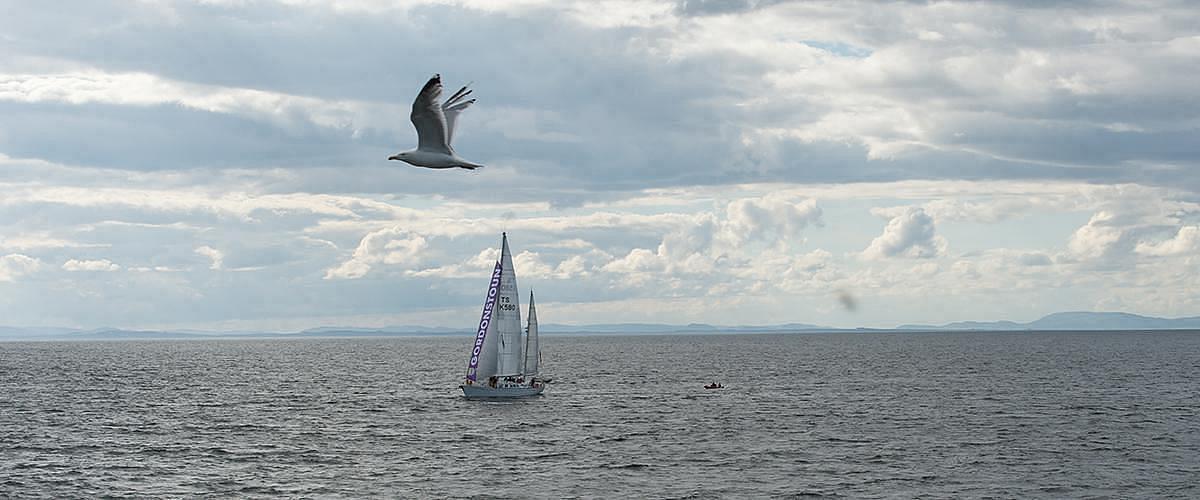Do what’s right, not what’s popular.
Do what’s right, not what’s popular.
Flag Service Speech by Lisa Kerr, Principal at Gordonstoun.

.jpg)
It has been a pleasure to welcome Gordonstoun students at the start of the new school year. Our school community is a busy one and one which works well because staff and students make good decisions, pull in the same direction and support each other through the challenging times.
Many of our students have travelled here from countries where there is considerable political turmoil, poverty, or industrial dispute.
Nearly 600 miles south of here – in the UK Houses of Parliament at Westminster – are currently taking place some of the most tumultuous political events in living memory.
As I got ready for work, contemplating the opportunities and challenges of the new school year, I heard an item on the news about how, in the run up to elections, politicians tend to make ‘popular’ announcements. They promise to spend millions on hospitals and schools. After all, who can argue with that? But this got me thinking about how difficult it is for politicians to do the important but unpopular things if they are always thinking about getting elected. I tried to think about what might be an important thing to do, but which might not be popular to promise if you were trying to become Prime Minister. Maybe something like financial support for people who are unemployed, or increasing the funding for prisons so that people in jail can learn skills that will make them better citizens after their release. There are other things that might be important to specific groups of people – maybe improving care for people with dementia or depression – or funding for adults with disabilities.
The problem for politicians is that we voters seem to want to vote for things that make our own lives better.
Of course, what’s popular changes over time. When I was at school, I was in a debating society trying to promote environmental protection. That was thirty year ago and it has taken those thirty years for the environment to become a mainstream and popular policy.
Only now – now that we can see the impact of climate change - can we look back and wish that consumerism, single use plastics and fossil fuels hadn’t been quite so popular and that being responsible stewards of our planet had been.
The lessons of the impact of popularity politics is an important one for anyone who ever has to take a decision. At Gordonstoun the role of staff is to make good decisions which will enrich students’ experiences, keep them safe, and help them to achieve their full potential.
Students might not like the decisions which the staff make. Whether that is about their work, the tidiness of their rooms or when they can use a mobile phone.
But leadership – whether of a country or of a school or of a group of students – is not somewhere that we should pursue popularity.
As the adults entrusted with the care of our students we would be foolish to focus on whether or not they like the decisions we make. Of course it is lovely to be liked – to be the favourite teacher – but more important is to be sure that, if we are liked, it is for the right reason – for doing things of ‘quality’ – for doing the right thing.
The same values apply to our young people.
In school, having the security of a group of friends is so important. And each student will quite understandably, be hoping to be popular amongst their peers.
But it is almost certainly true that if you seek that popularity for its own sake, it will be short-lived and shallow. It’s a bit like fashion, intoxicating and all-consuming for a moment, but gone in an instant –and not very good for the environment!
The question is whether to do the popular thing or to do the right thing. To be someone who blindly follows the popular path, or someone who thinks about which path to take when at a crossroads. To be the person who follows the crowd, or the person who stands up for what they believe in. This is the question that each of us needs to ask ourselves each day when we decide what to do, how to behave, what to say.
Of course, doing the right thing doesn’t always feel easy and doesn’t always get us the instant gratification of a laugh, a slap on the back or an admiring look.
So if we are liked, if we are popular, it should be because we are the friend that someone can count on when they are struggling, because we were willing to turn up to training at every practice and helped our team perform well, because we were willing to sit and study, sharing ideas and making sure we achieved our very best, because we were the person who noticed a change that was needed and were willing to make it ourselves.
What is right is not always popular and what is popular is not always right.
Whether we are prime minister, principal or pupil – let us do what is right. Popular or not.